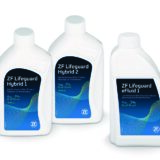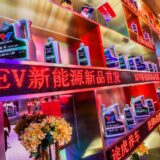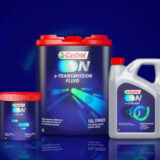
American Petroleum Institute to form NEV Fluids Work Group
Multiple technologies and vehicles fall under the New Energy Vehicles banner, including electric vehicles, hybrids, fuel cell vehicles, and hydrogen internal combustion engines. Currently, no industry standards exist for these rapidly developing technologies and the fluids they require.
New Energy Vehicles or NEV is a terminology that is more commonly used in China to designate plug-in electric vehicles eligible for public subsidies, and includes battery electric vehicles (BEVs), plug-in hybrid electric vehicles (PHEVs) and fuel cell electric vehicles (FCEV). NEV is a term that has not been adopted by Western countries, though.
On September 2, the American Petroleum Institute (API) announced its intention to form a New Energy Vehicle Fluids Working Group to consider standards for NEV fluids. The announcement was made during the API Lubricant Standards Group Meeting. There is an opportunity for standardisation for driveline fluids, battery coolants, dielectric fluids, and other special greases, says Jeffrey Harmening, manager of API’s Engine Oil Licensing Certification System (EOLCS). He also oversees API’s Diesel Exhaust Fluid Certification Program and the Motor Oil Matters (MOM) program.
The API/ILSAC process is well suited for standards development in this area, says Harmening. Initially, all API Lubricants Group members will be included in the working group — unless a company opts not to participate or submits an alternative representative. However, API has recognised it does not have all the required expertise in the NEV area. One of the early goals of the group is to foster outreach to other OEMs that traditionally have not been a part of API. A symposium was offered as one possible method to identify and gather the required companies “under the tent.” Establishing the standards development process and licensing program recommendations is another initial task for the NEV Fluids Work Group, says Harmening.
Typically, driveline specifications are established because of a request from an individual or group of OEMs. The NEV Fluids Work Group was not formed because of OEM request, he says. API says the group has been created to get ahead of the issue, and to put procedures in place to give everyone a mechanism to develop standards.
During the meeting, concerns were raised around the difficulty of setting industry standards for NEV driveline fluids, which are typically OEM specific. While acknowledging NEV driveline fluids are atypical, API indicated it wanted a framework that would allow these groups to take part in a single process to generate standards when the need arises. “If there is an opportunity for standardisation, the platform gives us a way to work with OEMs to develop minimum standards,” says Harmening.
There was discussion on other groups that are also looking to establish fluid standards for NEVs, such as SAE International. The American Petroleum Institute representative acknowledged that API needs to conduct further due diligence to align the U.S. lobby group’s efforts with other industry bodies. Representing more than 600 members, the American Petroleum Institute based in Washington, D.C., is the largest U.S. trade association that represents all segments of America’s oil and natural gas industry.
API’s Engine Oil Licensing and Certification System is a voluntary licensing and certification program that authorizes engine oil marketers that meet specified requirements to use the API Engine Oil Quality Marks. Launched in 1993, API’s Engine Oil Program is a cooperative effort between the oil and additive industries and vehicle and engine manufacturers Ford, General Motors, and Stellantis (formerly Fiat Chrysler) and those represented by the Japan Automobile Manufacturers Association (JAMA) and the Truck and Engine Manufacturers Association (EMA). The performance requirements and test methods are established by vehicle and engine manufacturers and technical societies and trade associations such as ASTM International, SAE International, and the American Chemistry Council (ACC).














